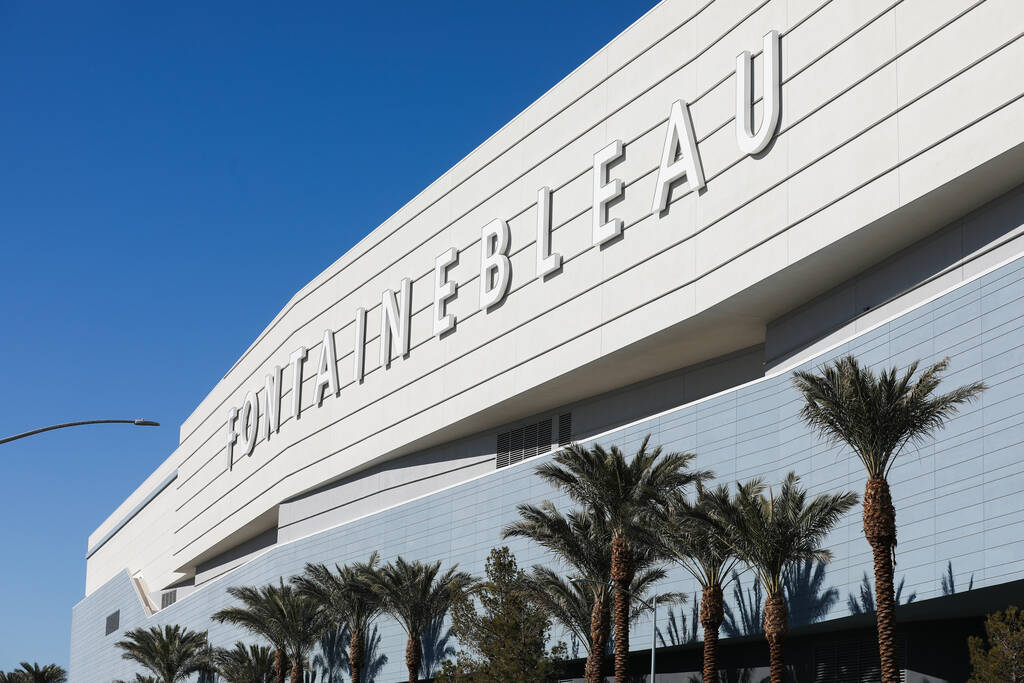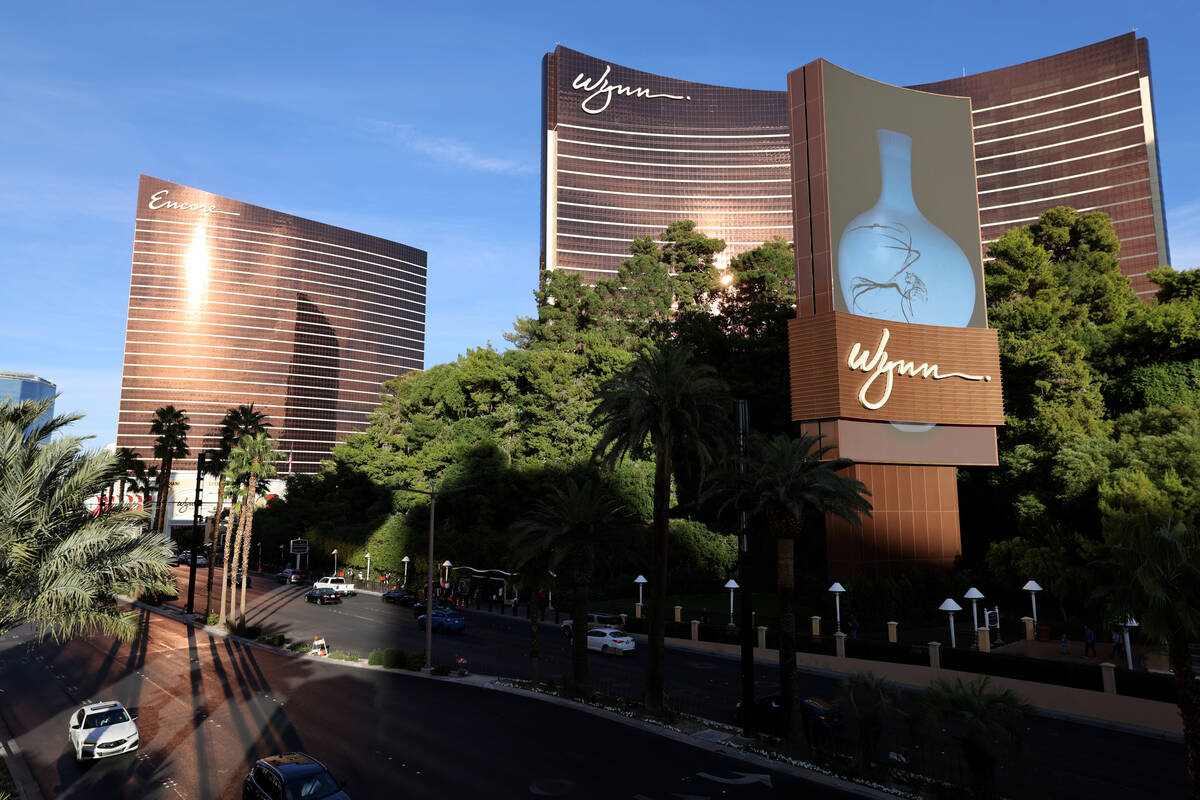Two of the biggest court cases of the year involved gaming companies against each other with Aristocrat battling Light & Wonder and Wynn against Fontainebleau Las Vegas.



While most Southern Nevada’s casino and gaming equipment manufacturing companies relished a profitable 2024, many also found themselves in courtrooms more often than they wanted.
And, in most cases, with the wheels of justice turning slowly, they’ll continue to be there fighting the same cases in 2025 as well.
One manufacturer was told by a judge to remove 2,200 of its slot machines from casino floors — and that has spawned a potential class action from investors angry that their shares in the company have lost value.
After Las Vegas-based Light & Wonder in September was ordered by U.S. District Judge Gloria Navarro to remove its Dragon Train-themed slot machines from North America casino floors because they seemed too much like Australia-based Aristocrat Technologies Inc.’s Dragon Link and Lightning Link games, the company went to work substituting them with other Light & Wonder products.
Light & Wonder CEO Matt Wilson said during the company’s third-quarter earnings call with analysts that he was grateful for the support he received from casino companies that took his replacement machines after Aristocrat in February filed a lawsuit accusing Light & Wonder of trade secret misappropriation, copyright infringement, trade dress infringement and deceptive trade practices, accusing the Las Vegas company of producing “a cheap knockoff” of its machines.
Although Wilson said he disagreed with the ruling, there was ample evidence to suggest otherwise because the Aristocrat designers of its game later went to work for Light & Wonder.
The Light & Wonder machines made it to tribal casinos in California, Kansas and Minnesota.
After Light & Wonder complied with the judge’s order, it now has to gear up f0r another potential legal fight. The New York-based Rosen Law Firm has begun investigating potential securities claims on behalf of shareholders of Light & Wonder Inc., which saw its share price plunge 19.5 percent the day after the Review-Journal published a story about Navarro’s court ruling.
Rosen attorney Phillip Kim is investigating investor losses and is soliciting information from affected shareholders.
Wynn-Fontainebleau case
A different high-profile lawsuit filed in 2024 involved two Strip neighbors, venerable Wynn Resorts Ltd., which operates Wynn Las Vegas and Encore Las Vegas as well as casinos in Boston and Macao, and the year-old Fontainebleau Las Vegas.
Clark County District Judge Mark Denton in May denied a temporary injunction sought by Wynn against Fontainebleau to stop the resort from poaching executives from the Wynn properties.
The case has ramifications in the practice of resorts requiring their executives to sign noncompete agreements in employment contracts.
Wynn filed its initial lawsuit against Fontainebleau at the end of February and the vitriol between the two companies quickly escalated with Fontainebleau countersuing Wynn.
In the counterclaim, Fontainebleau made public a text exchange between Fontainebleau CEO Jeff Soffer and Wynn CEO Craig Billings that included a profanity-laced response from Billings calling one of Soffer’s subordinates “a rank amateur.”
“He hasn’t operated a lemonade stand, much less a complex operation like you’re about to open,” Billings said in one text. “He’s running around ham fistedly trying to poach people under contract, which is a surefire way to turn the town against you. Rein him in to stop the damage he’s doing to your business.”
Once Denton ruled against the temporary injunction request from Wynn, there has been no further court actions scheduled into 2025.
Steve Wynn lawsuit
Wynn Resorts was also in court during the year on matters related to Steve Wynn’s last days at the resort in 2018.
In January, Navarro affirmed a settlement reached in September 2023 that ended sexual harassment lawsuits against the company by nine anonymous women.
The judge’s action brought to a close a series of events that forever changed Wynn Resorts, ranging from the departures of several executives to a revamping of the company’s board of directors.
The group of nine women, workers at Wynn and Encore Las Vegas’ salon, alleged they had been sexually harassed for years. They filed a lawsuit against the company and Steve Wynn in 2019, a year after he left the company.
In court filings, the women gave graphic descriptions of how Steve Wynn asked personal questions of a sexual nature, forced them to massage him near his genital area and required them to provide services to him in secluded areas, including his office.
Steve Wynn has said he has never harassed or sexually assaulted anybody.
Wynn wasn’t the only major Las Vegas company embroiled in court cases.
Two MGM actions
MGM Resorts International was on the offensive and defensive side of separate cases.
Throughout 2024, MGM has been a part of the high-profile case involving former MGM and Resorts World Las Vegas President Scott Sibella, whose license was revoked in December by the Nevada Gaming Commission.
In January, Sibella pleaded guilty in U.S. District Court in Los Angeles for failing to file suspicious activities reports while employed at MGM to federal officials investigating the presence of illegal bookmakers in violation of anti-money-laundering laws. In a 17-page plea agreement, Sibella admitted to knowing California resident Wayne Nix ran an illegal bookmaking business, but still allowed him to gamble.
But MGM also was penalized.
In non-prosecution agreements with the Justice Department, MGM Grand and The Cosmopolitan of Las Vegas were ordered to pay a combined $7.45 million fine as part of a money-laundering settlement for violations of the Bank Secrecy Act.
While MGM was on the defensive side of that case, it was on offense in an April case against the Federal Trade Commission.
The company filed a four-count lawsuit in U.S. District Court in the District of Columbia against the FTC and its top officer, Chairwoman Lina Khan, claiming the agency violated the company’s Fifth Amendment right to due process while investigating the September 2023 cyberattack against the company.
The FTC countered two months later with a demand in U.S. District Court in Nevada for MGM to respond to a demand for information known as a civil investigative demand.
MGM had alleged that Khan should have disqualified herself in the case because she had a conflict of interest since she checked into the MGM Grand while the cyberattack was occurring.
Those cases are ongoing.
Discrimination lawsuit
Meanwhile, a lawsuit involving a Nevada regulator filed in 2024 will continue into 2025.
Jaime Black, a Nevada Gaming Control Board employee since 2014 and appointed to head the Administration Division in June 2017, said in a lawsuit filed in September that she was pressured by Control Board member Brittnie Watkins to engage in discriminatory hiring practices, then fostered a hostile work environment when she resisted.
The Nevada Attorney General’s office, representing the Control Board, in October sought to dismiss the lawsuit brought in U.S. District Court in Nevada.

